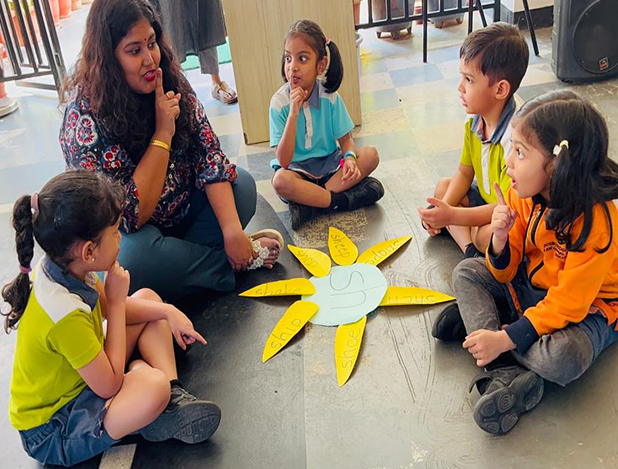The Importance of Phonics in Early Years of Learning
- 27 September 2023

“Phonetics” I am sure you must have heard this word a lot of times and might be or might not be aware of what it is. But when you hear about phonetics as an important part of curriculum for toddlers it is natural for parents like you and me to feel isn’t it too much for such a small kid? Even I for a long time thought that phonetics is for college people and not kids. But when I learnt about what exactly is my perspective completely changed.
When you hear the word phonetics the first thing comes in our mind is that phonetics means sounds. People often interchange the words phonetics and phonics use it as one. However, both the words have two different meanings. Phonetics is the scientific study of speech sounds and is different from what children learn at school. Children lean phonics at school. Phonics is a way of teaching children how to read and write. It helps them hear, identify, and use different sounds that distinguish one word from another in the English language.
Phonics is important in early childhood education because it lays the foundation for strong literacy skills later in life. Research by International Literacy Association shows that phonics, when taught correctly, is one of the most effective ways of teaching children to learn to read. It simplifies the English language down into just 44 sounds. Children, therefore ‘decode’ words by breaking it down into it sounds rather than having to memorise 1,000’s of words individually.
At Oakridge, sounds are taught from easiest to hardest: single letter sounds first like cat, hat, rat, fat etc using multi-sensory activities and stories. Then we move on to two letters making a sound and so on. This helps children get familiar with the sounds that the letters make and help them when reading and blending words together.
Here are a few tips to help you nurture your child’s progress.
Phonics can be tricky to understand if you have never used it to learn to read, but if you would like to know a little more, please speak to your child’s teacher at Oakridge International School and they would be more than happy to help you !